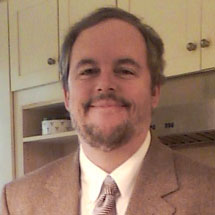 Stephen J. Elledge, Gregor Mendel Professor of Genetics, Department of Genetics, Harvard Medical School will give the 2014 Francis Crick Lecture on Friday 19th September at 4.15pm in the LMB’s Max Perutz Lecture Theatre. The lecture is open to anyone in the local area who is interested in attending.
Stephen J. Elledge, Gregor Mendel Professor of Genetics, Department of Genetics, Harvard Medical School will give the 2014 Francis Crick Lecture on Friday 19th September at 4.15pm in the LMB’s Max Perutz Lecture Theatre. The lecture is open to anyone in the local area who is interested in attending.
Stephen completed his PhD at the Massachusetts Institute of Technology. His postdoctoral fellowship at Stanford University saw him begin to focus on the cell cycle. Stephen’s research has led to important discoveries about how cells detect and repair DNA damage, uncovering a whole signal transduction mechanism that alerts cells to chromosome defects.
His current work involves genetic and computational strategies being applied to understand how aneuploidy drives tumorigenesis and how genetics can uncover vulnerabilities in cancer cells. In 1993 he was appointed as a Howard Hughes Medical Institute Investigator.
The title of the 2014 Francis Crick Lecture is “How Aneuploidy Drives Cancer”.
Lecture Abstract:
Aneuploidy has been recognized as a hallmark of cancer for over 100 years, yet no general theory to explain the recurring patterns of aneuploidy in cancer has emerged. We developed Tumor Suppressor and Oncogene (TUSON) Explorer, a computational method that analyzes the patterns of mutational signatures in tumors and predicts the likelihood that any individual gene functions as a tumor suppressor (TSG) or oncogene (OG). By analyzing >8200 tumor-normal pairs we provide statistical evidence suggesting many more genes possess cancer driver properties than anticipated, forming a continuum of oncogenic potential. Integrating our driver predictions with information on somatic copy number alterations, we find that the distribution and the potency of TSGs (STOP genes), OGs and essential genes (GO genes) on chromosomes can predict the complex patterns of aneuploidy and copy number variation characteristic of cancer genomes. We propose that the cancer genome is shaped through a process of cumulative haploinsufficiency and triplosensitivity. We are now assessing how aneuploidy drives cancer and the potency with which it does so. Ramifications of aneuploidy will be discussed.
Background Information:
The Francis Crick Lecture is named in honour of LMB Nobel Laureate Francis Crick, and is one of a series of named lectures organised by the LMB to be given by eminent scientists from around the world. Francis was born in 1916 in Northampton. He studied physics at University College London. His PhD work was interrupted by World War II, during which he worked on the design of acoustic and magnetic mines for the British Admiralty. In 1949 he joined Max Perutz’s MRC Unit in Cambridge. It was here that he helped solve the structure of DNA and initiated work on the genetic code. In 1976 he moved to the Salk Institute, California. He immersed himself in trying to define how we are aware of things – consciousness. He continued with this until he died, defining the important goal of trying to find a neuronal correlate of consciousness. He died in San Diego on 28 July 2004.
Further References:
Elledge Lab
Francis Crick LMB Alumni Biography
Poster for the Crick Lecture